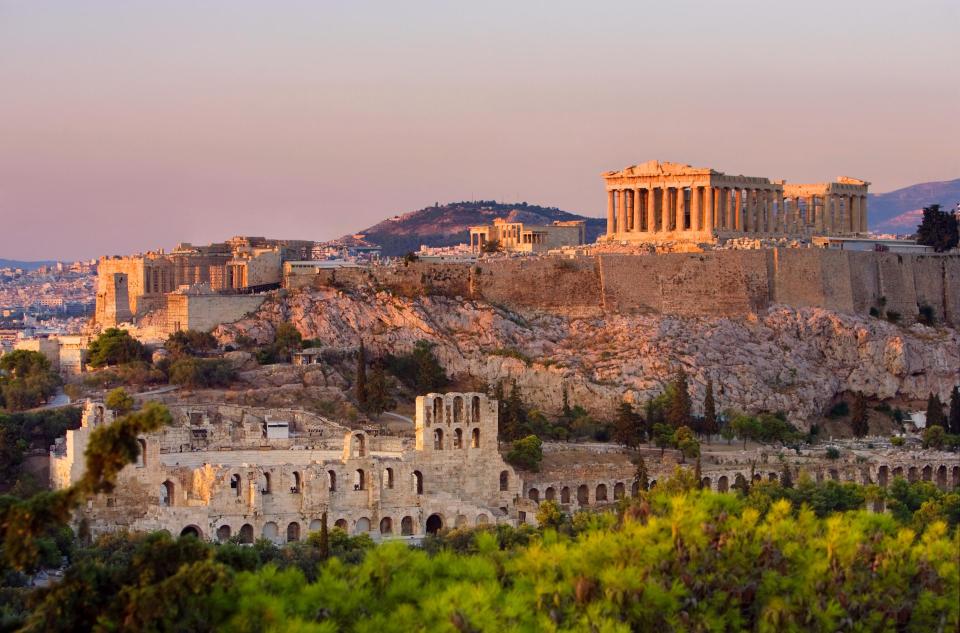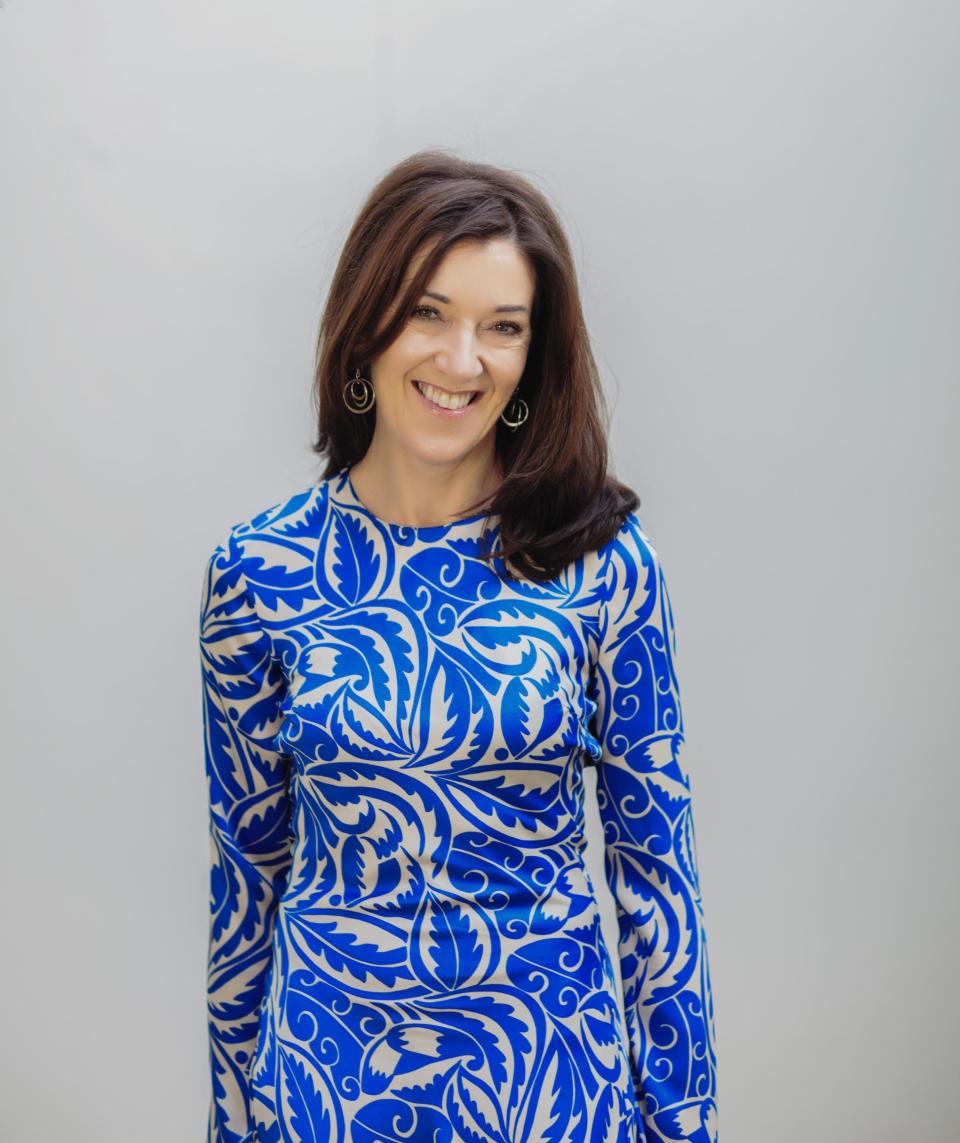The thrilling corners of Greece that inspired Victoria Hislop

Novelist Victoria Hislop has found ‘the storytelling spark’ in Crete, Thessaloniki and the streets of Athens. Who better to ask for an inspirational guide to their highlights?
Greece has become more than a second home – it has also given me a second citizenship. In September, I swore my oath of allegiance to the Hellenic Republic and the day of the ceremony included meetings with the president, the prime minister and the general secretary of internal affairs. I am now the proud possessor of Greek identity.
Many of my Greek friends, smiling sardonically, tell me that I will now stop loving this country. A standard position in Greece is to be immensely patriotic but also deeply jaded and critical of everything about it. So far, I have felt no such transformation. The landscapes, the history and the people still provide constant inspiration.
With six novels behind me and 10 stops on each book tour, I have travelled the length and breadth of the country promoting the Greek editions. I have been to the north, to the Albanian border where bears sometimes appear, to the east (where Turkey is in view) and down to the southernmost town in Crete on the Libyan sea.
The contrasts in landscape and culture are fairly extreme – mountains, plateaux, rivers, lakes, hot springs, volcanoes; Greece has it all. It’s problematic to talk about my favourite places because I have thousands and I have not found anywhere lacking its own idiosyncratic charm.
As I write, I am sitting in the terrace café of the Acropolis Museum. It’s early October and I keep glancing up at the Parthenon’s golden stones under a blue sky, grateful for the light breeze. The temple is iconic and for many it represents some of the best things about this country, not least beauty and the aesthetic principles that the West have followed for millennia.

Athens dominates Greece, being home to more than a third of the total population, so whenever a British friend travels to the country, I am insistent that even if they are planning to go straight to an island or the Peloponnese, they should spend a few days in the capital first. It is crammed not only with museums but also some really vibrant areas of regeneration.
My Greek friends have introduced me to their favourite places, so even if the Acropolis is somewhere I constantly return to, the rest of my time is spent in downtown areas, not gazing at ancient archaeological history, lovely as it is, but being in the streets that are quintessentially 20th century.
I have a flat just off Patission Avenue, which leads directly down to the city centre, and this is where I derive much of my inspiration. My neighbourhood is Kato Patissia, a network of streets mostly laid out in the 1930s and 1940s. It is a half-hour stroll to Syntagma, the main square of Athens, and I have a view of the Acropolis from my rooftop. The streets are all dense with fine examples of neoclassical, art deco and bauhaus architecture. Many have fallen into disrepair, but their dilapidation adds to their charm. Wandering these streets always inspires me to invent characters and stories.

My novel Those Who Are Loved is mostly set here in this geometric grid of narrow roads. It was easy to imagine my characters ducking and diving here to avoid the eyes of Nazis during the occupation or even of Greek soldiers during the military dictatorship. Much as I appreciate the vestiges of its ancient history, for me the storytelling spark is found in the streets of modern Athens. Thessaloniki has a similar effect. People from the past seem still to populate the squares and alleyways. Greece’s second city, Thessaloniki became an obsession for a long period and was the setting for my third novel, The Thread. Like Athens, it is a city rich in ancient history, but the most extraordinary period was the 20th century.
For a long time, it was the ideal multicultural city, with an equal mix of Christians, Muslims and Jews. Within a very short period, Thessaloniki was stripped of this, first with the departure of the Muslims in 1922 and then of the Jews two decades later. While its streets still bear physical traces of the past (an old mosque, the Ottoman houses, magnificent decaying mansions, a synagogue, headstones from Jewish graves recycled as paving), the city has maintained the atmosphere left behind by those who have long since departed.

With its huge stretch of seafront, semi-derelict dockland warehouses and a view of Mount Olympus across the Gulf, Thessaloniki is another city that always generates ideas and stories.
One aspect of Greece that cannot be illustrated in a guidebook (but can be written about) is the mystic power of certain places. Take Delphi. This is where people travelled to thousands of years ago to consult the Oracle about their future. Although the priestess has gone, the power of the place remains.
Ancient Delphi is not only the most spectacular archaeological site in Greece, it is also very spiritual. Its location in the mountains and the purity of the air make it easy to understand why people flocked here to seek divine guidance. Late in the afternoon, when the crowds have gone, I have experienced a profound sense of tranquillity in Delphi and had to create a character simply to convey what I had felt. To sit in the ruins of the Temple of Apollo, contemplating the words that are known to have been above the entrance, Gnothi Seauton (Know Thyself), provokes deep thought.

Another place where there is special energy (and inspiration) is Crete. I spend a few months every year on the island and often experience shutter-rattling earthquakes. But it’s not just the seismic movement that gives me extra energy to write there. I often take my laptop into a local village and find that something soon suggests itself to me.
Crete was the setting for my first novel, The Island, and also the latest. The small villages in the mountains have inspired many short stories and provided ideas for future ones. These horia are timeless. If you walk into a village in Lassithi, eastern Crete, it is as if you are taking a step back into 1920. It’s difficult to believe you are in 2020 when there are old men with extravagant moustaches and knee-length leather boots herding goats on the hillside, and old ladies, stooped and dressed in black, goading firewood-laden donkeys down the street.
This is how the people of this area live and survive, through harsh winters and hot summers, growing vegetables in their smallholdings and pressing olives from their own trees. They would ask why anyone wanted to live otherwise. Indeed, there are very few old people’s homes in Greece. Instead there is the kafeneio, where elderly men while away the hours before walking the short distance home to bed. I have met many people in Crete who have no idea how old they are, but when you hear their memories, it is evident that they are well into their 90s.

Each novel I have written has been inspired by a very specific location and the place itself is a character in the book. I could not, for example, move the story of The Island from Crete to another Greek island, or Those Who Are Loved to a different city. I often tell stories of Greece’s darker times (the country experienced a very turbulent 20th century: wars, dictatorships and economic instability) but the wonder is that nothing has scarred its extraordinary beauty.
So when someone asks me: “Where shall I go in Greece?” my response is to toss a coin, because almost everywhere that fate has taken me has been unique and memorable.

Victoria Hislop’s latest novel One August Night, a sequel to her 2005 debut bestseller The Island, will be out in hardback on Oct 29, published by Headline (£14.99). To buy it now for £11.99, visit books.telegraph.co.uk or call 0844 871 1514


